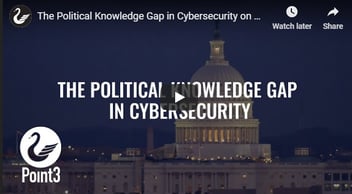In our rapidly evolving digital landscape and smart cities, critical infrastructure stands at the center of our societal well-being. These vital systems, ranging from energy grids and power transmission to transportation to banking to healthcare, serve as the backbone of modern civilization. However, this interconnectedness has made critical infrastructure a primary target of cyber attacks—creating a pressing need to fortify these systems.
The Complexities of Securing Critical Infrastructure
The integration of digital technologies in critical infrastructure has revolutionized service delivery and operational efficiency. Nevertheless, OT/ICS presents a unique challenge due to their inherent complexities. These systems were initially designed with availability in mind, operating under the assumption of being air-gapped and isolated. However, the landscape has evolved significantly. IT and OT networks are now interlinked, breaking the traditional isolation paradigm. Moreover, the introduction of modern technologies like IoT devices further amplifies the risks. Even seemingly harmless elements, such as Morse, add layers of vulnerability.
Past Attacks: A Stark Reminder
History has shown us the devastating consequences of cyberattacks on critical infrastructure. The 2015 cyber-attack on Ukraine’s power grid left over 200,000 people without electricity, the Colonial Pipeline ransomware attack in 2021 disrupted fuel supply chains, and healthcare organizations being targeted with ransomware like the infamous 2017 WannaCry attack are glaring examples. These incidents demonstrate the potential havoc cyber threats can wreak on society, further underscoring the necessity for proactive security measures and constant vigilance in safeguarding critical infrastructure.
Addressing Challenges and Leveraging Threat Insights
Various challenges plague critical infrastructure security, and a comprehensive approach is required to mitigate these risks effectively.
Critical sectors cannot afford downtime. Any disruption can have cascading effects, impacting public services and public safety.
- Legacy Systems and Outdated Technology:
Legacy systems are often more vulnerable to cyber threats due to outdated security protocols and difficulty applying patches.
Critical infrastructure systems are highly intertwined, exponentially increasing the potential impact of cyber-attacks. Malicious actors often exploit this connectivity, targeting HMIs or SCADA systems to gain control over crucial components like PLCs.
- Compliance and Regulatory Pressures:
Meeting compliance standards like NERC CIP, CFATS, FERC, and DHS CFAR adds an additional layer of complexity and demands a significant investment of resources in cybersecurity efforts.
- Advancing Threat Sophistication:
With the surge in nation-state cyber-attacks from sophisticated hacktivists and cyber-crime syndicates, the risk to critical infrastructure is escalating rapidly.
Breach and Attack Emulation (BAS+) platforms play a pivotal role in strengthening the security posture of critical infrastructure. These platforms provide organizations with actionable insights into their security posture by simulating threats and performing control validation. By executing real-world attack emulations across the cyber kill chain, SCYTHE enables organizations to continuously validate that security controls are in place, properly configured, and working as intended. This approach offers visibility into an organization’s security ecosystem, enabling security teams to continuously validate control efficacy at all layers—policy, processes, technology, and staff.
SCYTHE, the leading provider of BAS+ capability, offers a comprehensive solution to the cybersecurity challenges critical infrastructure faces. Our platform enables organizations to emulate real-world attacks and deliver actionable insight for understanding, prioritization, and remediation.
For inquiries, please contact our team at support@scythe.io.
